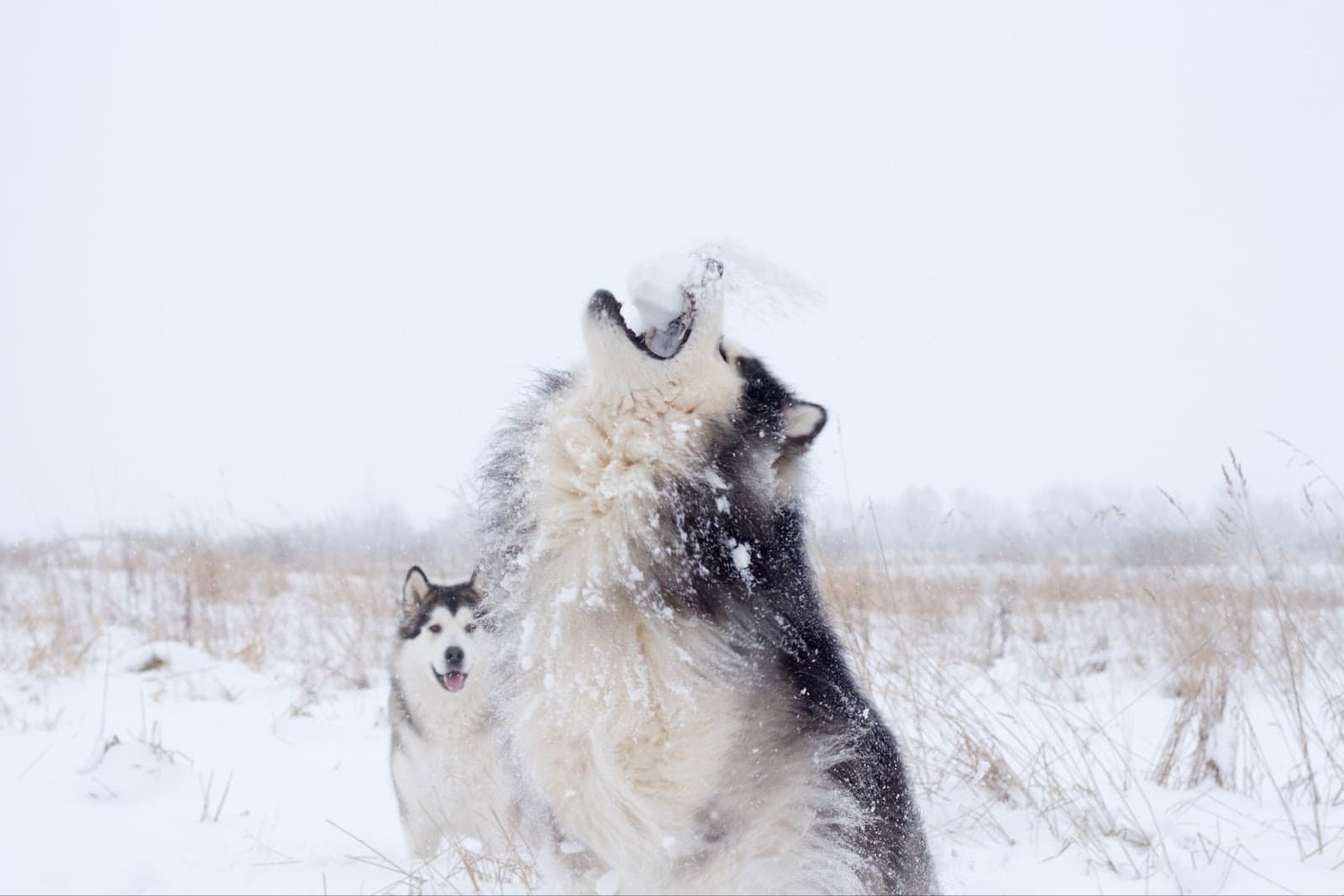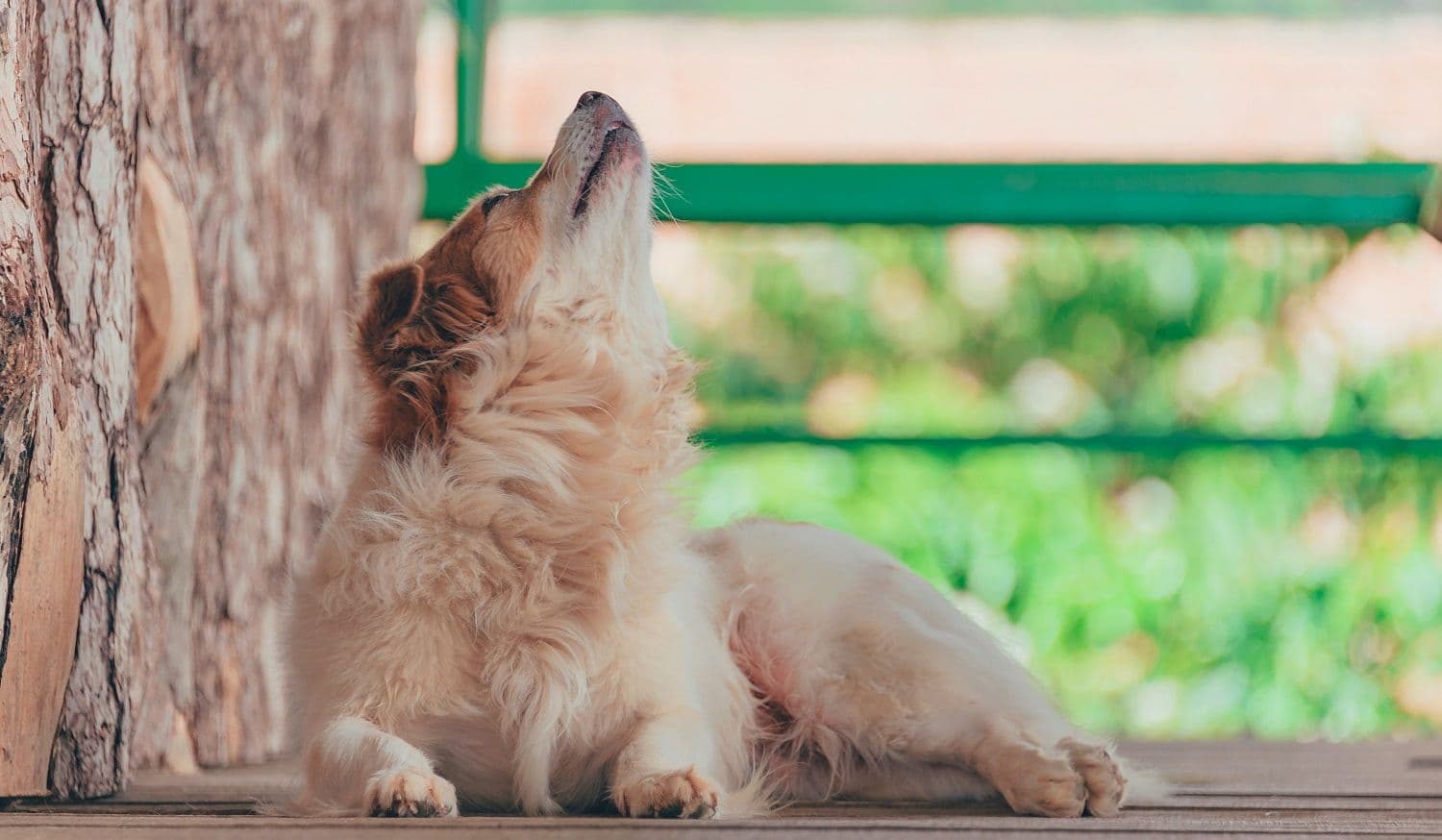Understanding Canine Howling
All canine species have the natural characteristic of howling as a means of communication. Although wolves are the most well-known howlers, dogs can also howl on occasion. Wolves howl to attract attention from other wolves, fend off predators, and form strong bonds with other pack members.
Howling has historical roots, just like many other canine actions. Wolves in the forests would bellow in the wild to let other wolves in their pack family know where they were. Wild animals were warned to stay away from the brave wolves' domain by the howls of those wolves. Although they may not howl to signal their location or scare off intruders, dogs nevertheless howl today just as they did in earlier eras. Given that dogs live with their families, it's critical to comprehend what they're saying when they howl in order to react effectively.

Common Causes of Dog Howling
Some of the most frequent causes of dog howling are listed below:
-
Signal for homing and community organizing: Wolves and stray dogs howl in the wild to beckon scouts back to the pack after a hunt. Dogs that stay behind howl to signal where their base is. Dog howling serves as a form of auditory lighthouse or homing signal that directs other pack members back. Similar expressions include pet dog howling, especially if you've been away from home all day. To summon their loved ones home, dogs howl.
-
Boundary marker and form of defense: Other dogs may tell when someone has claimed and occupied a space by hearing howling. It serves as a warning to visitors that intrusion could result in bloodshed. The community is made aware of their presence and any changes by the howling dogs. Dog howling serves as a defense strategy in this situation, keeping away potential predators and protecting the safety of the other dogs in the pack. When a stranger knocks on the door or a new car pulls up in the driveway, some dogs in a domestic situation will bark, while others will howl.
-
Get people’s attention or show fear: A howling dog might just be seeking attention. Some dog owners are aware that canines are just as capable of manipulating our emotions as people. The owner of the dog is drawn to the sound of the dog wailing. Maybe you rush across the house to check what's wrong and are met by a dog that wants to play when you get there. If you repeat this procedure often enough, the dog will eventually discover that howling is a reliable technique to make you run.
-
Response to stimuli and bonding exercises: Dogs' howling may be a reaction to outside triggers. Sirens from an ambulance, police car, or fire engine are frequent provocations. My dog never howled other than when these sounds were made. She would always sit up and participate in the wails when she heard the distant sound of approaching sirens. She never howled in response to the sound of other dogs howling, thus the cause is still unknown. Perhaps some dormant genetic memory was awakened by the siren's tone.
-
Warn harm or discovery: Another response to the query, "Why do dogs howl?" It's possible that dogs scream to indicate pain. When harmed, people cry; when the same thing happens to dogs, they howl. Dogs cry to express their grief. Some dogs have been taught to howl when they find something new. Breeds of hunting dogs cry to indicate the chase or capture of game. A dog may howl to let its owners know where the reward is if it has cornered, caught, or been treed.
What Causes a Puppy to Howl?
Puppies howl when they want to be noticed. The following are some causes of canine howling:
- Hunger
- Thirst
- Need to use the restroom
- Loneliness
You must attend to your puppy's needs if they begin to howl. When a puppy howls, be patient. You will eventually be able to distinguish between these causes of puppy wailing and loneliness. If you've made sure that all of their requirements are addressed, you can train puppies using the same behavior-conditioning methods that we use with adult dogs.

Too much howling? Here is what to do.
While some howling in dogs is quite normal and to be anticipated, dog owners can prevent excessive howling, as well as uncalled-for barking, by removing the trigger:
-
Spend more time with your dog and investigate the source of any howling. Dogs that are lonely will scream because they want someone to play with them or pay them attention. Spend as much time as you can with your dog to get a head start.
-
If your dog howls for attention, try to hold off on reacting while they are howling. Instead, watch the behavior with patience until it stops. Your dog needs to understand that howling won't make them more popular.
-
When your dog is calm, swoop in with rubs, treats, and a ton of positive reinforcement. Keep in mind that a reward doesn't always have to be something tasty. It may be sufficient to simply make eye contact with them or recognize them verbally.
-
Even if a sound sets off this kind of behavior in dogs that scream in response to it, there are ways to desensitize and counter condition your dog so that they become quieter and less vocal. Aggression, anxiety, phobias, and desensitization are all treated using counterconditioning and desensitization. Finding the trigger and stopping it in its tracks are the ultimate objectives.
Takeaways
Dogs may howl for a variety of reasons, such as to attract your attention, to communicate with other dogs, to warn you of danger, or in response to a loud sound. If your dog has been calm in the past but has recently started wailing, we have veterinarians who can help to make sure they are not sick or injured.
